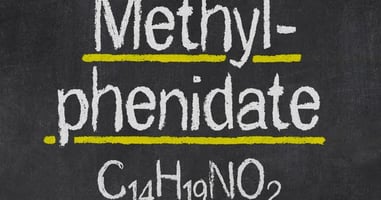More than half of patients with eating disorders have at least one other psychiatric condition such...
Antidepressants May Be Less Effective in Patients With Mild General Anxiety Disorder, Panic Disorder
 |
While previous studies have suggested that the benefits of antidepressants are smaller in patients with mild versus severe symptoms of depression, few have examined how symptom severity might influence other conditions for which antidepressants are prescribed.
Ymkje Anna de Vries, Ph.D., and colleagues of the University of Groningen, The Netherlands, combined patient data from randomized, controlled trials of selective serotonin reuptake inhibitors and serotonin-norepinephrine reuptake inhibitors in 3,430 patients with GAD; 1,195 with social anxiety disorder (SAD); 1,132 with obsessive-compulsive disorder (OCD); 1,071 with posttraumatic stress disorder (PTSD); and 2,151 with panic disorder (PD). All of the trials involved patients who were treated with either duloxetine, fluoxetine, paroxetine, or placebo.
The authors found that symptom severity moderated antidepressant efficacy in patients with GAD and PD. For GAD, the symptom improvements in patients taking an antidepressant relative to those taking placebo were 1.4 points on the Hamilton Anxiety Rating Scale (HAM-A) for participants with mild anxiety (baseline HAM-A score=10), 2.7 points for patients with moderate anxiety (baseline HAM-A score=20), and 4.0 points for severe anxiety (baseline HAM-A score=30). Compared with patients taking placebo, patients with mild PD (10 panic attacks every two weeks at baseline) experienced 0.4 fewer panic attacks every two weeks, patients with moderate PD (20 panic attacks/two weeks at baseline) experienced 0.9 fewer panic attacks every two weeks, and patients with severe PD (40 panic attacks/two weeks at baseline) experienced 4.7 fewer panic attacks every two weeks.
Regardless of initial symptom severity, patients with SAD, OCD, and PTSD responded similarly to antidepressants.
“To understand the implications of these findings, it should be noted that the clinical relevance of a treatment effect is context-specific, depending on such factors as the expected sequelae of the disease, the costs and drawbacks of the treatment, and the efficacy of alternative treatments,” de Vries and colleagues wrote.
“[I]t is clear that the risk-benefit ratio for GAD and PD becomes less favorable as initial severity decreases. It is therefore imperative that clinicians transparently discuss the expected benefits of antidepressants with patients with mild to moderate symptoms,” they concluded.
For related information, see the Psychiatric News article “Percentage of Americans Taking Antidepressants Climbs.”
(Image: BCFC/ShutterStock)






